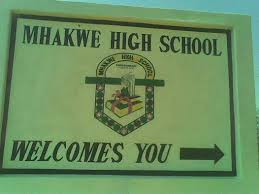
Ivory Coast’s President Alassane Ouattara won a blowout poll victory and a second five-year term in a weekend vote intended to draw a line under years of turmoil and a 2011 civil war, the elections commission announced on Wednesday.
Reuters
Ouattara won a total of 2,118,229 votes, or 83.66 percent of ballots cast, President of the Independent Electoral Commission (CEI) Youssouf Bakayoko announced at a media conference. Sunday’s vote had a turnout of 54.63 percent, he said.

The former International Monetary Fund official, whose leadership has helped the West African nation re-emerge as a rising economic star after the 2011 civil war, faced a deeply divided opposition.
Ouattara won the most votes in all but one of the 31 regions as well as the largest city, Abidjan, and the capital, Yamoussoukro, results showed.
He won all but 16 votes in his home constituency of Kong, in Ivory Coast’s north, where more than 14,000 voters cast ballots.
Sunday’s election was judged to be peaceful and transparent by observers, likely reassuring investors who have flooded into the world’s top cocoa grower, drawn by growth around 9 percent over the past three years.
- Chamisa under fire over US$120K donation
- Mavhunga puts DeMbare into Chibuku quarterfinals
- Pension funds bet on Cabora Bassa oilfields
- Councils defy govt fire tender directive
Keep Reading
“I would like to congratulate all Ivorians for their maturity and exemplary behaviour,” Ouattara said late on Tuesday before the results were announced.
“Ivory Coast is resolutely committed to the path of stability and the reinforcement of democracy.”
Of the six candidates seeking to unseat Ouattara, his closest challenger was Pascal Affi N’Guessan, head of ex-president Laurent Gbagbo’s Ivorian Popular Front (FPI), who won 9.29 percent of votes.
The results announced by the CEI must now be validated by the constitutional court.
Gbagbo’s refusal to accept Ouattara’s 2010 poll victory sparked a post-election conflict that killed 3,000 people. He is now awaiting trial before the International Criminal Court in The Hague accused of crimes against humanity.
N’Guessan’s candidacy was an attempt to bring the FPI back into the political mainstream after it sat out parliamentary and local elections in the wake of Gbagbo’s arrest.
FPI hardliners disavowed N’Guessan, however, and called for their supporters to boycott the polls. Turnout was visibly lower in areas considered to be Gbagbo’s traditional strongholds.
Three opposition candidates dropped out of the race in the days before the election, alleging it had been rigged and called on voters to stay home. The CEI dismissed the allegations as unsubstantiated.
Faced with a partial opposition boycott and concern over voter apathy, turnout was considered to be critical to legitimising a second Ouattara mandate.
While Sunday’s turnout was much lower than the more than 80 percent participation rate for the hotly contested 2010 vote, it was significantly higher than the two previous presidential elections in 2000 and 1995.
It also corresponded roughly with an estimate given on Monday by POECI, a civil society observer platform carrying out a parallel vote tabulation, which put turnout at 53 percent, with a margin of error of 1.8 percent.
At least two candidates made allegations of irregularities on Sunday.
Simeon Konan Kouadio, one of the six candidates who remained in the race to unseat Ouattara, said his campaign team had been informed of massive fraud but offered no evidence.
However, in a surprise about-face, Bertin Konan Kouadio, who initially made claims that foreigners had been allowed to vote, conceded defeat and congratulated Ouattara on Monday, even before official results began to emerge.
The streets of Abidjan were calm with no signs of public celebration after the CEI’s pre-dawn declaration, which was the culmination of a marathon 8-hour announcement of partial results.
Abel Domahi, a waiter, said he was glad the election was over and pleased that Ouattara had won.
“The country will be able to continue the development it’s started,” he said as he prepared to return home after a night shift. “And we really hope it will be done in peace.”







